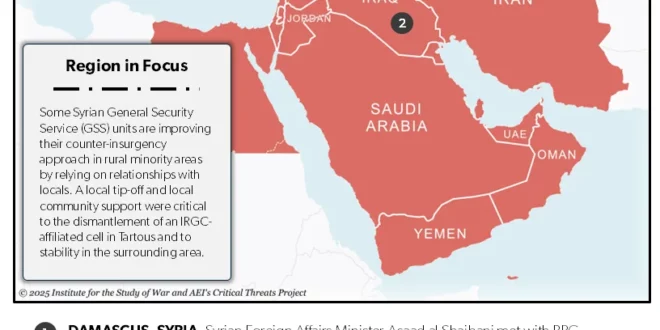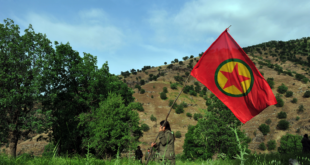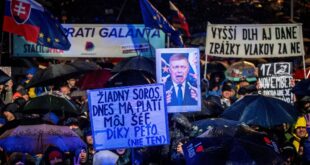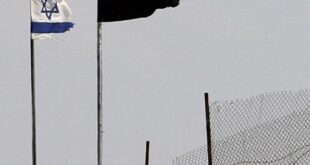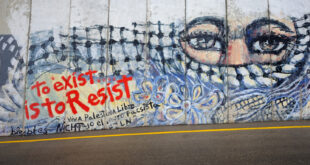Toplines
Some Syrian General Security Service (GSS) units are improving their counter-insurgency approach in rural minority areas by relying on relationships with locals. The GSS arrested a large Islamic Revolutionary Guards Corps (IRGC)-affiliated Assadist cell in Sheikh Bader, Tartous Province, on November 12.[1] Independent Syria researcher Gregory Waters reported on November 21 that locals originally tipped off the GSS to the cell’s presence at their compound in Sheikh Bader.[2] The two GSS officers who led the investigation said that the local tip-off and local community support were critical to the GSS’s dismantlement of the Assadist cell and to stability in the surrounding area.[3]
The approach used by GSS in Sheikh Bader indicates that the GSS is experiencing some level of regional organizational learning across tactical units. The GSS officers in Sheikh Bader said that they observed and imitated the local engagement strategies that GSS officers employed to build relationships with the local Ismaili and Alawite communities in the neighboring town of Qadmous, which indicates some level of organizational learning.[4] GSS officers who first deployed to the Sheikh Bader area in December 2024 contacted local notables and established a civil council to liaise between security services and the community.[5] This council worked to ease tensions with the GSS over time and build better community relationships.[6] This strategy has been successful outside of the arrest of the Assadist cell. GSS officers reportedly responded rapidly to defend locals from abuses committed by Ministry of Defense personnel during the March violence targeting Alawites.[7] This GSS unit’s success is a positive example of how units can apply lessons to improve counterinsurgency operations in minority areas in communities that hold distrust of the Syrian government. It is not clear to what degree the GSS is integrating these lessons at the national level, however.
The IRGC-affiliated Assadist cell does not appear to have strong local support in the Sheikh Bader area, given that locals tipped off the GSS to their location.[8] CTP-ISW noted on November 14 that the cell’s activity, attempts to recruit, and the lack of GSS action against the group suggested that the cell had at least some local support in the Sheikh Bader area.[9] Waters reported instead that locals initially mistook the Assadist cell for GSS personnel because GSS members often initially occupied villas abandoned by Assad regime generals who fled the area, and the insurgents had been invited by an Assadist general and occupied his house.[10] Locals reported the Assadist cell’s presence to local GSS officers as soon as they realized its nature. The GSS investigated and monitored the cell for three months, which explains part of the lag in action against the groups.[11]
The IRGC-affiliated Assadist cell may have had foreign support, including possibly from Iran. Waters reported that the GSS recovered laptops and cellphones from the cell in Sheikh Bader on November 12 that provided evidence of the cell’s “domestic and international connections.”[12] The GSS also recovered IRGC certificates that members of the cell had received during the Syrian civil war.[13] Iran may seek to exploit similar well-equipped cells of Shia insurgents in the future, even if Iran did not support this specific cell.[14] A senior IRGC officer deeply involved in past Iranian operations in Syria claimed that the IRGC is rebuilding its militia networks in Syria in a December 2024 speech.[15]
NOTE: A version of this text also appears in ISW and AEI’s November 21 China & Taiwan Update.
Syrian Foreign Affairs Minister Asaad al Shaibani met with PRC Foreign Affairs Minister Wang Yi for the first time in Beijing on November 17. The PRC’s highlighting of security issues during the meeting indicates that PRC policy toward the new Syrian government will be shaped primarily by counterterror and security concerns. Shaibani said that Syria would not allow any entity to use Syrian territory as a base to harm or undermine PRC interests.[16] Wang said that Beijing was considering participating in Syria’s economic reconstruction.[17] Wang also mentioned the East Turkestan Islamic Movement (ETIM) in reference to the Syrian promise to disallow any entity from using Syrian territory to harm PRC interests.[18] The ETIM is an anti-PRC Uyghur militant group linked to the militant Turkestan Islamic Party (TIP), which fought in Syria against the Assad regime until its fall in December 2024.[19] The distinction between the ETIM and the TIP is debated, and a United Nations sanctions monitor has described them as the same group.[20] TIP announced its disbandment in June 2025, and the new Syrian army reportedly absorbed several thousand Uyghur ETIM/TIP fighters as a brigade in its 84th Division.[21] Uyghur militants have also assumed senior Syrian military positions, including a brigadier general and two colonels.[22]
The new Syrian army’s formal integration of Uyghur militants into its ranks, including high-ranking military officials, is likely extremely concerning for the PRC. Thousands of Uyghurs have left the PRC’s Xinjiang province since 2013 to train and fight in Syria’s civil war.[23] Many of these Uyghur militants fighting in Syria hoped to return to Xinjiang and use their combat experience and extremist connections to wage an insurgency against the PRC.[24] The PRC has used the rhetoric of counterterror efforts to justify its repressive crackdown on Uyghur communities in Xinjiang.[25]
The PRC appears particularly concerned about ETIM/TIP militants operating in Syria and elsewhere in the Middle East and Central Asia, having accused them it has accused of terrorist attacks in Xinjiang.[26] PRC engagement with the Taliban government in Afghanistan has largely centered on containing and combating ETIM/TIP militants operating there.[27] The PRC cooperated closely with the Assad regime on counterterrorism efforts targeting ETIM/TIP, and CDOT-ISW previously assessed that PRC policy towards the new Syrian government would heavily focus on containing and combating ETIM/TIP.[28] The PRC is likely to make significant economic participation in Syria’s reconstruction contingent upon a continuation of PRC-Syria counterterror cooperation targeting Uyghur militants in the region.
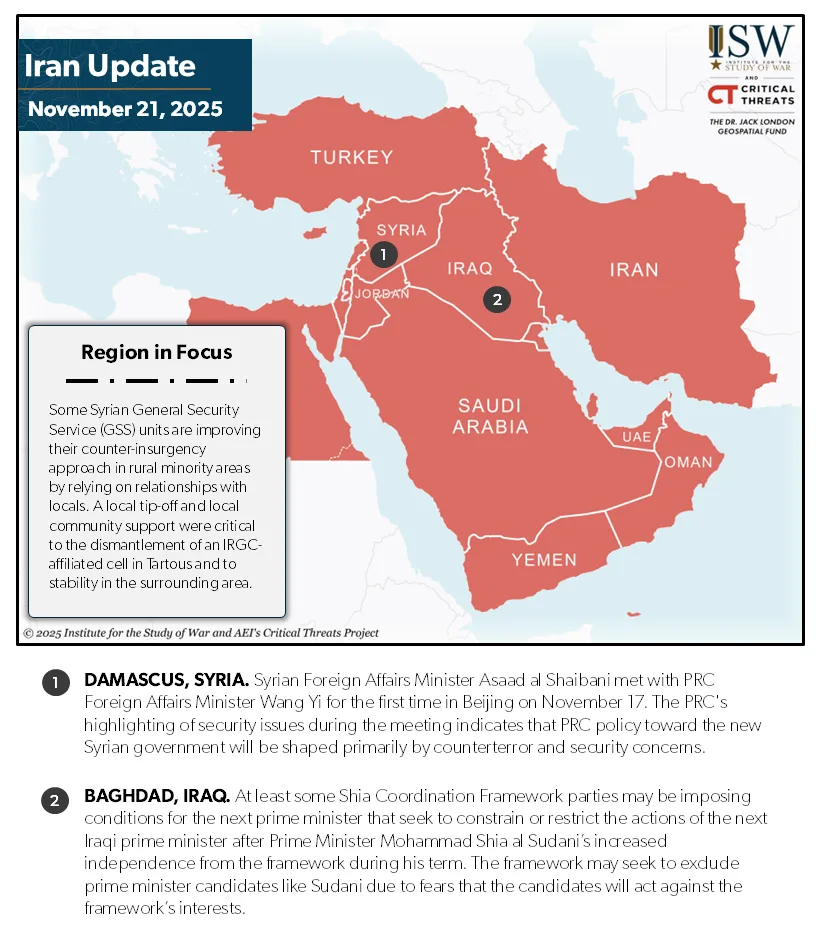
Key Takeaways
Coastal Insurgency: Some Syrian General Security Service (GSS) units are improving their counter-insurgency approach in rural minority areas by relying on relationships with locals. GSS officers who arrested an IRGC-affiliated Assadist cell in Tartous said that local tip-off and local community support were critical to the dismantlement of the cell and to stability in the surrounding area.
Sino-Syrian Relations: Syrian Foreign Affairs Minister Asaad al Shaibani met with PRC Foreign Affairs Minister Wang Yi for the first time in Beijing on November 17. The PRC’s highlighting of security issues during the meeting indicates that PRC policy toward the new Syrian government will be shaped primarily by counterterror and security concerns.
Iraqi Government Formation: At least some Shia Coordination Framework parties may be imposing conditions for the next prime minister that seek to constrain or restrict the actions of the next Iraqi prime minister after Prime Minister Mohammad Shia al Sudani’s increased independence from the framework during his term. The framework may seek to exclude prime minister candidates like Sudani due to fears that the candidates will act against the framework’s interests.Iran
Iranian defense officials examined aircraft and air defense assets at the 2025 Dubai Airshow from November 17 to 21. Iranian Defense and Armed Forces Logistics Minister Brigadier General Aziz Nasir Zadeh and Intelligence Protection Organization Head Brigadier General Rahim Yaghoubi led an Iranian delegation to the airshow in the United Arab Emirates.[29] The Iranian Defense and Armed Forces Logistics Ministry oversees the Iranian defense-industrial complex and manages Iranian arms sales and purchases.[30] Armed Forces General Staff (AFGS)-affiliated Defa Press reported that the trip is part of Iran’s “defense diplomacy” to strengthen regional engagement and explore new opportunities for cooperation. [31] The airshow featured drones, air defense systems, and aircraft, including Russian Su-57 fighter jets.[32] Iran did not display any military equipment in the airshow, which suggests that Nasir Zadeh was at the airshow to determine possible future Iranian defense purchases.[33]
The United States sanctioned over 50 entities, individuals, and vessels on November 20 for facilitating illicit Iranian oil exports that support Iran’s armed forces and proxies in the region.[34] The US State Department reported that Iran has relied on oil revenue to rebuild its military following the Israel-Iran War.[35] The United States sanctioned several entities linked to the AFGS-affiliated Sepehr Energy Jahan Nama Pars Company (Sepehr Energy Jahan). The US Treasury previously sanctioned Sepehr Energy Jahan in 2023 for generating revenue for the Iranian Defense Ministry.[36] Sepehr Energy Jahan utilizes a network of front companies and shadow fleets to sell billions of dollars’ worth of Iranian oil annually.[37] The United States also sanctioned seven aircraft operated by Mahan Air.[38] The United States originally designated Mahan Air in October 2011 for ”providing financial, material, and technological support” to the IRGC Quds Force and supporting its efforts to supply weapons to members of the Axis of Resistance, including the former Bashar al Assad regime in Syria and Lebanese Hezbollah.[39] The United States also sanctioned seven vessels involved in Iran’s petroleum trade.[40] At least some of the vessels may have been involved in ship-to-ship transfers to obfuscate illicit Iranian oil exports, according to commercially available maritime data.
Iraq
At least some Shia Coordination Framework parties may be imposing conditions for the next prime minister that seek to constrain or restrict the actions of the next Iraqi prime minister after Prime Minister Mohammad Shia al Sudani’s increased independence from the framework during his term. The Shia Coordination Framework is a loose coalition of Shia political parties, some of which Iran backs. Islamic Supreme Council in Iraq spokesperson Ali Difai said on November 21 that the framework has set conditions for the next prime minister, which include that the candidate cannot form a political party, cannot have held any prior military, security, or judicial positions, and must agree to only run for a second term as prime minister within the framework.[41] These conditions would technically disqualify Sudani from a second term as prime minister. Sudani’s Reconstruction and Development Coalition won 46 seats and a plurality of votes in the parliamentary elections.[42] Multiple framework members have opposed Sudani’s decision to participate in the November 2025 parliamentary elections and seek a second term as prime minister.[43] The framework may seek to exclude prime minister candidates like Sudani due to fears that the candidates will act against the framework’s interests. Sudani recently dismissed two Iranian-backed militia commanders and withdrew a bill from Parliament that would have formally institutionalized parts of the Popular Mobilization Forces, for example.[44] These actions have eroded some framework parties’ confidence that they can control and co-opt Sudani.[45] The members of the Shia Coordination Framework have historically sought prime ministers who are perceived as malleable and susceptible to framework influence.[46] The conditions would also disqualify State of Law Coalition head Nouri al Maliki and Iran-backed Badr Organization-affiliated National Intelligence Service head Hamid al Shatri. Maliki’s State of Law Coalition won 29 seats, and the Badr Organization won 18 seats in the parliamentary elections.[47]
Syria
Syrian Foreign Minister Asaad al Shaibani stated that there is still “no finalized agreement” on Russian basing rights in Syria as Syria “rebuild[s]” its relationship with Russia.[48] Shaibani told a Saudi-owned, UK-based outlet on November 18 that Syria and Russia are engaging in “ongoing” negotiations over the future Russian military presence at Hmeimim Airbase and the port of Tartous.[49] Shaibani said that the Russians will not be “ornamental guests” and that Syria will not allow Russians to stay at the two bases unless their presence “serves Syria’s interests.”[50] Shaibani did not specify what Syria is seeking from Russia in return for basing rights. The Syrian government is reportedly reviewing a Russian proposal to redeploy Russian military police to former positions along the Syrian border with the Israeli-controlled Golan Heights to act as a buffer between Israel and Syria.[51] Shaibani has also noted in previous interviews that Syria seeks Russian compensation for its conduct during the civil war and has not yet reached an agreement with Russia on this matter.[52] Russia has not shown any public inclination to provide reparations or compensation to Syria for Russia’s conduct during the Syrian conflict.
 Eurasia Press & News
Eurasia Press & News
